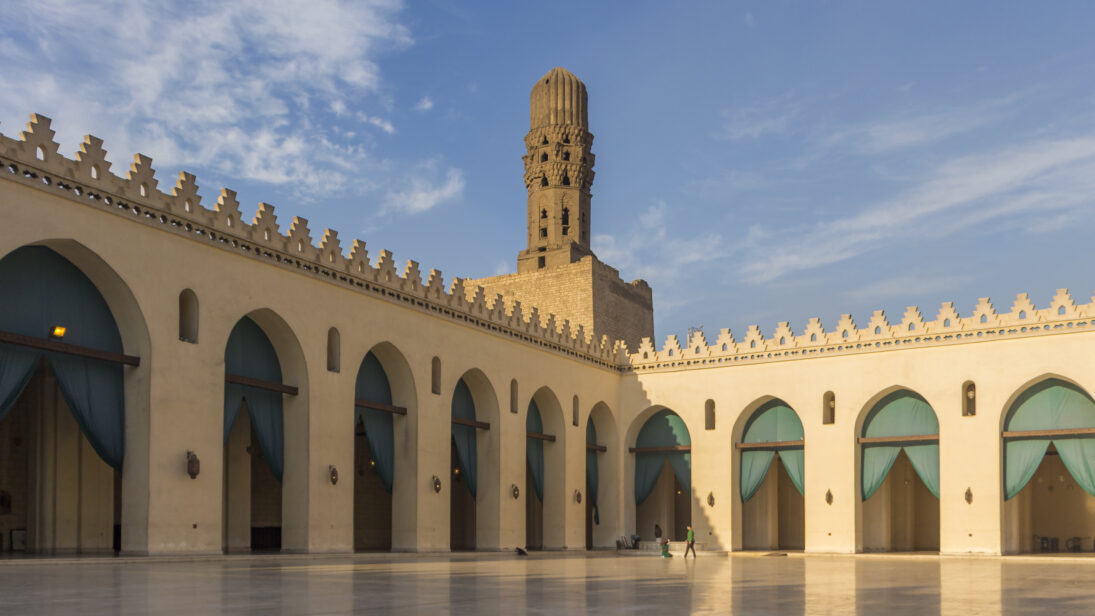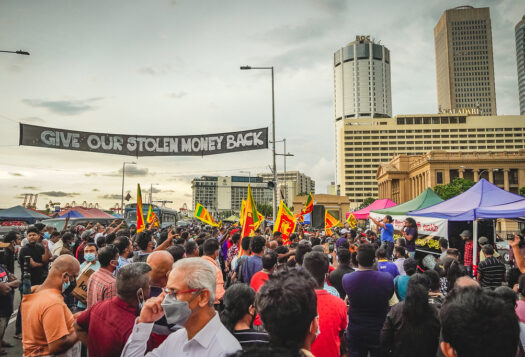
Indian Prime Minister Narendra Modi visited Egypt recently, marking the first visit by an Indian Prime Minister to the country in 26 years. During the visit, Modi not only met with Egyptian officials but interacted with the Bohra Muslim diaspora community at the Al-Hakim Mosque in Cairo. While successful, Modi’s trip highlights an inherent contradiction in his foreign and domestic policies towards Muslims, one rooted in a contradiction between realpolitik and ideology.
In recent years, Modi has enhanced India’s relationship with Muslim-majority countries in South Asia, Central Asia, and the Middle East to strengthen India’s security and economy. At the same time, the Modi government’s approach to Indian Muslims domestically has been marred by connections with Hindutva ideology and widespread allegations of discrimination against religious minorities. While India’s foreign policy outreach with the Muslim world has served Indian foreign policy objectives, Modi’s actions towards Indian Muslims have and will continue to weaken the country internally.
To strengthen India and secure its rise, Modi and the Bharatiya Janta Party (BJP) should increase political outreach toward Indian Muslims and ensure that the state serves the interests of all its constituents. Doing so is essential to meet India’s foreign policy objectives, including strengthening its economic and security ties with the Muslim world.
Guided by Realpolitik: Modi’s Engagement with the Muslim World
Modi’s engagement with the Muslim world is important for India’s internal and foreign policy interests due to India’s geographic location. In his second term in office, Modi has stepped up diplomatic engagement with countries in South Asia, the Middle East, and Central Asia with a focus on security and economic issues.
The Modi government’s approach to Indian Muslims domestically has been marred by connections to Hindutva ideology and widespread allegations of discrimination against religious minorities.
Modi’s grand strategy aims to enhance India’s role in the neighborhood through its Neighborhood First and Act East policies. Modi engages with India’s Muslim-majority neighbors like the Maldives and Bangladesh due to their strategic locations within the Indo-Pacific. While the Maldives has catered to Indian interests and India has reciprocated with assistance to the nation before and after the pandemic, a friendly government in Dhaka has enabled India to counter communal tendencies emanating from the state. For instance, in 2021, communal violence targeting Bangladesh’s Hindu minority over the alleged desecration of the Quran had a domino effect, with Muslim minorities being targeted along the Indian border state of Tripura. In such a scenario, maintaining bilateral ties with neighbors enabled Modi to manage the crises.
Similarly, geoeconomic and geopolitical compulsions have driven India’s interaction with Central Asia, a region pivotal for India’s energy security. India maintains a limited presence in Afghanistan as its gateway to Central Asia to limit Pakistan’s influence in the region. Modi engages with Central Asia through platforms like the India-Central Asia Summit in 2022 and the Shanghai Co-operation Organization Summit (SCO) deliberating on counter-terrorism measures through the SCO Regional Anti-Terrorist Activities Structure (RATS). Furthermore, Central Asian states like Tajikistan and Uzbekistan engage with India to attract investment and boost medical tourism.
Modi has engaged with Iran through projects like the Chabahar Port and the International North-South Transport Corridor (INSTC) to increase connectivity between India and the Middle East and ensure continued access to Afghanistan. Within the larger Middle East, Modi has held one-on-one engagements with Muslim countries and acquired diplomatic heft through forums like I2U2 (India, Israel, UAE, and the United States). Rapprochement with the Middle East is at least partially motivated by India’s fuel dependence, with 40 to 45 percent of its crude oil imports originating from the Gulf States.
Modi has strengthened ties with the U.A.E., signing the Comprehensive Economic Partnership Agreement (CEPA) in 2022 which incentivizes bilateral trade that now stands at USD $77.6 billion. The two countries also partner in non-traditional security sectors like artificial intelligence and space. Furthermore, Saudi Crown Prince Mohammad Bin Salman made a stand-alone visit to India in 2019 to de-hyphenate its ties with India and Pakistan. Both sides have enhanced people-to-people ties, with Saudis aiding in the rescue of Indian nationals in Sudan earlier this year. These foreign policy moves in the Middle East and South and Central Asia signal a significant enhancement in India’s engagement with the Muslim world under Prime Minister Modi.
Guided by Ideology: Modi and Indigenous Indian Muslims
In stark contrast lies Modi’s treatment of Indian Muslims at home. Despite the BJP’s tacit engagement with Indian Muslims for electoral gains since 2019, the party continues to face criticism for inciting violence against the Muslim community.

Cow vigilantism and lynching attacks on Muslims combined with anti-Muslim actions from state officials and bureaucrats is a major cause of concern in India. Despite pushback from the intelligentsia, the “othering” of Indian Muslims brings religious ideology into the state machinery, with cases of religious bigotry by party leaders becoming the norm. The BJP fears alienating its Hindutva vote bank that envisages the return of the Ram Rajya — a mythical state where Hindu majoritarianism will thrive. Interestingly, it is within this domestic sphere that Modi’s limited outreach to Indian Muslims takes place.
The BJP views Muslims “as anathema to the Indian body politic” and alienates the majority of India’s Muslim population. This narrative leads to the condemnation of the Islamic faith and its practices by party spokespersons, leading to protests by Modi’s Muslim-majority partner countries.
Given that Indian domestic and foreign policy are intertwined, Modi’s treatment of Muslims at home impacts India’s relationships with Muslim-majority countries abroad. For instance, news of ill-treatment of Indian Muslims or vilification of the Islamic faith directly leads to criticism from the Middle Eastern states at the federal level and its local populations, damaging India’s image internationally.
This criticism brings to the fore the transactional nature of ties between India and the Muslim-majority states, one that is dependent on a constant give-and-take relationship. For instance, the Middle Eastern states view India as a lucrative market that serves its strategic and economic needs while India wants better ties with the region to secure its energy needs and economic growth. Deeper ties with the Middle East also enable India to formidably counter Pakistan in the region.
Despite pushback from the intelligentsia, the “othering” of Indian Muslims brings religious ideology into the state machinery, with cases of religious bigotry by party leaders becoming the norm.
However, the space for transactions narrows as local public opinion in these states becomes unfavorable towards India. Public opinion abroad has begun to turn as Indian Muslims face alienation at home and limited or no action is taken against the culprits. As a result, India’s diplomatic heft with Muslim-majority countries tends to wither, as the interests of Indian Muslims are not protected.
Future Ahead
In such a scenario Modi’s prioritization of friendship with Muslim-majority countries, despite Hindu nationalism at home, suggests that the BJP’s foreign policy choices are an outcome of realpolitik rather than ideology. However, if the BJP is committed to preserving its national interests, there is an argument to be made for the party to engage Muslims domestically.
Enhancing engagement with India’s Muslim population will facilitate better ties with the local populations of India’s neighboring Muslim-majority countries like Bangladesh and Maldives, where anti-India sentiment is breeding. Finally, it will strengthen India’s ties with the Muslim world as anti-minority sentiment within India will cease to be a roadblock in bilateral ties.
Also Read: Gandhi, the Taj Mahal, and the Dangers of Hindu Nationalism
***
Image 1: Al-Hakim Mosque in Cairo via Wikimedia Commons
Image 2: Muslims Protest Against Remarks Of Nupur Sharma And Naveen Jindal via Wikimedia Commons


